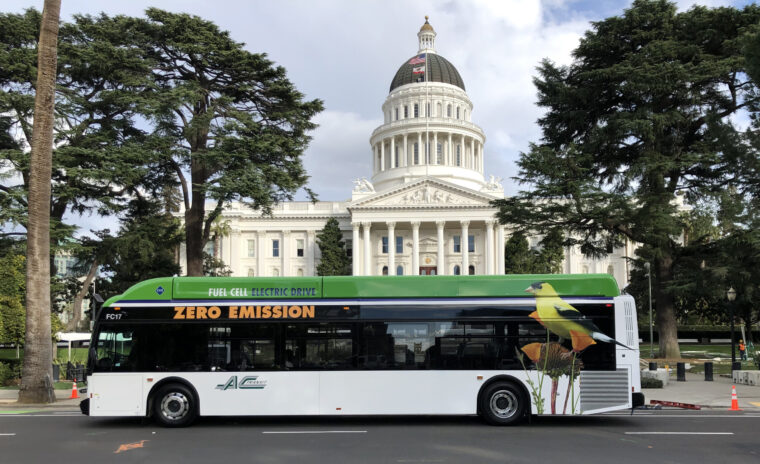
The U.S. Department of Transportation’s Federal Transit Administration (FTA) has announced approximately $1.5 billion for 117 projects to enhance public transportation across 47 states. Under the Bipartisan Infrastructure Law (BIL), the FTA has allocated nearly $5 billion over the past three years to replace and modernize transit buses in the U.S.
“By modernizing transit with improved clean energy technologies, we will also boost the longevity of our mass transportation system, reduce traffic congestion, and clean up the air we breathe in the neighborhoods and communities that line our roads and highways,” National Climate Advisor Ali Zaidi said.
Some 80% of the funded buses will be outfitted with zero or low-emission technology, reducing air pollution and contributing to achieving zero emissions by 2050. These initiatives also support the Justice40 Initiative, which aims to ensure that 40% of the overall benefits from federal investments in climate, clean energy, clean transportation and other areas are directed to disadvantaged communities marginalized by underinvestment and burdened by pollution.
“Thanks to the Bipartisan Infrastructure Law, we are creating new opportunities to improve the lives of millions of Americans who rely daily on buses,” FTA Acting Administrator Veronica Vanterpool said. “These grants will help deliver cleaner and greener transportation, designed to reach everyone, and to work for everyone, particularly in places that haven’t received enough resources in the past.”
Federal support for bus projects over the past several years has been improving public transit and helping communities advance their climate goals. For this year’s selections, the FTA prioritized awards aimed at strengthening U.S. bus manufacturing, making the cost of new buses more consistent and speeding up the delivery of new vehicles. Out of the 117 projects chosen, 47 totaling $817 million are from applicants who committed to purchasing standard model buses or using joint procurement. Standardized bus models without customization shortens manufacturing times and reduces costs.
Projects receiving funding from this round include:
New Jersey Transit: $99.5 million to build a charging facility with a solar canopy at its Meadowlands Bus Garage, providing shelter and charging to deploy battery-electric buses with renewable energy while increasing service.
Sacramento Regional Transportation District: $76.8 million to replace older buses with nearly 30 hydrogen fuel cell buses, upgrade a maintenance facility and provide workforce training. The project will improve service, reliability and air quality.
Colorado Department of Transportation, on behalf of the Roaring Fork Transportation Authority (RFTA): $32.8 million to modernize the Glenwood Springs Operations and Maintenance Facility to support its future zero-emission bus fleet. This project will help RFTA, which serves three counties and eight municipalities in rural central Colorado, achieve its goal of a zero-emission bus fleet by 2050.
Central Florida Regional Transportation Authority (LYNX): $27.6 million to buy up to 30 compressed natural gas buses to replace older diesel buses. This project will support LYNX’s efforts to transition its entire fleet to a combination of low- and zero-emission vehicles by 2028, as well as provide more efficient and reliable service.
Shoshone Bannock Tribe: $722,400 to buy five buses and two vans to replace older vehicles. The new vehicles will enable the tribe to provide essential bus service on the Fort Hall Reservation and into Pocatello, Blackfoot and Power County, Idaho.
The full list of funded projects for this year is available here.
The Grants for Buses and Bus Facilities program offers federal funding to transit agencies for purchasing and rehabilitating buses and vans, as well as building and modernizing bus facilities. The BIL allocated nearly $2 billion for this program through 2026. For fiscal 2024, approximately $390 million was available for grants.
The FTA’s Low- and No-Emission program provides funding to assist in buying or leasing U.S.-built low- or no-emission vehicles, including buses and vans. It also supports facility and station upgrades to accommodate these vehicles and the purchase of related equipment like charging stations.
The BIL earmarked $5.6 billion for the Low-No Program through 2026, which is more than 10 times the funding of the previous five years. For fiscal 2024, approximately $1.1 billion was available for grants under this program.
Photo courtesy of the California Air Resources Board
The post $1.5 billion in federal funding will help modernize transit appeared first on Government Market News.
